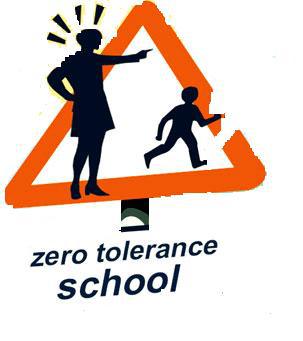Your child has been suspended or expelled from school. Maybe this isn’t the first time. Maybe it’s not the first school. Please understand you are not alone. Hundreds of children, beginning with kindergarten age, are suspended or expelled from school each year. These are bright kids who have a lot of potential yet they enter into the type of behavior that necessitates separating them from the other students.
Each school district has its own list of behaviors for which students are suspended or expelled but they are much the same.
1. Threatened, attempted, or caused physical injury to another person.
2. Possessed, sold, or furnished firearm, knife, or other dangerous object.
3. Possessed, used, or sold any controlled substance.
4. Offered, furnished or sold any substance represented to be a controlled substance.
5. Robbery or extortion.
6. Caused or tried to cause damage to the school or private property.
7. Stole or tried to steal school or private property.
8. Possessed or used tobacco.
9. Obscene acts or habitual profanity.
10. Offered or sold drug paraphernalia.
11. Disrupted school activities and defied authority of school personnel.
In our society these behaviors are not tolerated. People committing these acts are jailed and those who love them wonder why they made the choices they did.
Let’s not let it get that far. Let’s figure out now what the problem is and take the necessary steps now to turn a life around.
Behavior is only the outward manifestation of what is going on in the mind
Your teen didn’t get to this point overnight. It is important to not only find the problem but to help the student overcome the problem and be able to experience success.
It is very difficult for families to realize a child has a behavior problem. Parents may not think the child’s behavior is unusual for his age and that he will grow out of it. They may think the behavior is only an individual trait.
In making a determination, it is helpful to consider how much your child’s behavior is upsetting you, the child, and the family as a whole. If your child’s aggressive, argumentative, or withdrawn behaviors are upsetting to the family, it’s time to seek help.
Additionally, there are three guidelines to help determine whether your child has a behavioral disorder. First, how long has your child been exhibiting the behavior? Second, how intense is the behavior? For instance, most children will have temper tantrums but do these actually frighten you? Third, how old is the child? How does the behavior compare to other children of the same age?
If your child is exhibiting thoughts of suicide, hurting himself, or being so withdrawn that he cannot interact with others or go through daily routines, you need to seek immediate help from mental health professionals.
While your child is in school, he has access to school counselors and other education specialists who know which behaviors are normal and which show a need for help. When a child is suspended, parents can still get help from these sources and possibly get recommendations for other health specialists who can help.
What options are there now that your teen has been expelled?
– Home School? Yes, your teen may get the academics, the grades, and the knowledge. But he will not learn to interact with others in a positive manner, and the original problem still exists.
– Alternative School? The focus at an alternative school is to finish the coursework for graduation. There is no focus on the original problem of why the student could not succeed socially in the regular school setting and again, the original problem still exists.
– Specialty School? There are several different kinds of specialty schools and programs. There are wilderness programs “boot camps” military schools, and religious schools. Some include academics and some do not. Some programs are an intense “wake up call” that last about a month, and others are long term. Some focus only on the child and some involve the entire family in the healing process.
If your child has a behavior disorder, one month of intense “wake up” won’t change anything. It also won’t change the peer group he has or his involvement with drugs and/or weapons.
Where Do I Start?
A good place to start to find the right answer for your child is to make a list of the problems you can see such as drugs, violence, failing grades, abuse of family members, withdrawal. Once you have your list, contact us!
An educational consultant will be able to address your child’s specific needs and suggest some schools or programs that can meet those needs.
I know that at this point it feels overwhelming but there are a lot of people who can help. I have seen it work; I have seen kids go from angry, violent, addicts who “hate” their families to happy smiling kids who cherish their families. Your teen can get the smile back too.
